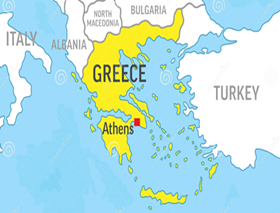

26th August 2023 (10 Topics)
Context
During the visit of Indian Prime Minster (PM) to Greece, both the countries has upgraded their relations to a ‘strategic partnership’ and pledged to double trade by 2030.
Highlights of the visit:
- According to the statement came from PM, India will expand cooperation in defence, security, infrastructure, agriculture, education and emerging technologies.
- From now, India and Greece will have an institutional platform for dialogue between their national security advisers.
- The two sides further decided to speedily finalize a mobility and migration partnership agreement to facilitate skilled migration.
- Also both countries had decided to upgrade bilateral ties to a strategic partnership and agreed to expand bilateral cooperation in the political, security and economic spheres.
- They also directed that both sides will work to double bilateral trade by 2030.
What does upgrading ‘strategic ties’ mean?
- A 'strategic relationship', as the term suggests, involves a shared understanding between the two or more states involved on the nature of threats in the environment and the place of their collective power in helping mitigate the threats.
- This does not amount to an ‘alliance’, meaning a deeper relationship in which the states are treaty bound to come to each other’s assistance in case of materialisation of a threat against any member state.
|
About Greece:
|
India-Greece Relations:
- Background:
- India and Greece established diplomatic relations in May 1950. India opened its resident Embassy in Athens in March 1978.
- On International lines:
- In modern times, the two countries have developed a warm relationship based on a common commitment to democracy, peace and development in the world and to a social system imbued with principles of justice and equality.
- India and Greece also share common approaches to many international issues, such as UN reforms and Cyprus.
- Greece has consistently supported India’s core foreign policy objectives.
- Greece participated with India in the Six-National Delhi Declaration on Nuclear Disarmament in 1985.
- Bilateral Trade relations:
- Bilateral trade will go up in 2017-18 due to projects, joint ventures and increasing trade.
- The main items of Greece’s exports to India are cotton, scrap (mostly aluminium, ferrous, copper and lead), marble and granite, aluminium foils, calcium carbonate, kiwi fruits and greasywool.
- Indian Diaspora:
- There are about 10,000 Indian nationals living in Greece. Most of them are farm, factory or construction workers or small entrepreneurs.
- A few Indian professionals work in multinational organizations in banking, insurance and software sectors.
- Indians are a law-abiding community and enjoy cordial relations and goodwill of the native Greek community.
Why Relations with Greece is significant for India?
- Geopolitical Balance: Both countries are strategically positioned at the crossroads of Europe, Asia, and Africa. Strengthening ties allows them to contribute to regional stability and balance in these regions.
- Maritime Cooperation: India's 'Act East' policy aligns with Greece's focus on maritime connectivity through its Blue Growth strategy. Enhanced cooperation can boost trade, investment, and connectivity along sea routes.
- Energy Security: Greece's role in the EastMed Gas Forum aligns with India's energy security interests. Collaborating in the energy sector can provide India with reliable sources of hydrocarbons.
- Cultural and Historical Ties: Ancient civilizations and shared cultural heritage foster cultural exchanges, tourism, and people-to-people connections, strengthening diplomatic bonds.
- Counterterrorism and Security: Collaboration in counterterrorism and security matters is crucial to combat transnational threats and ensure regional stability.
- Diplomatic Support: Both countries often align in international forums, amplifying each other's voices on global issues like climate change, multilateralism, and global governance.
- Trade and Investment: Exploring trade diversification and investment opportunities can stimulate economic growth in both countries.
- Defence Cooperation: Military cooperation can enhance defence capabilities and exchange of expertise in areas like naval technology and cybersecurity.



